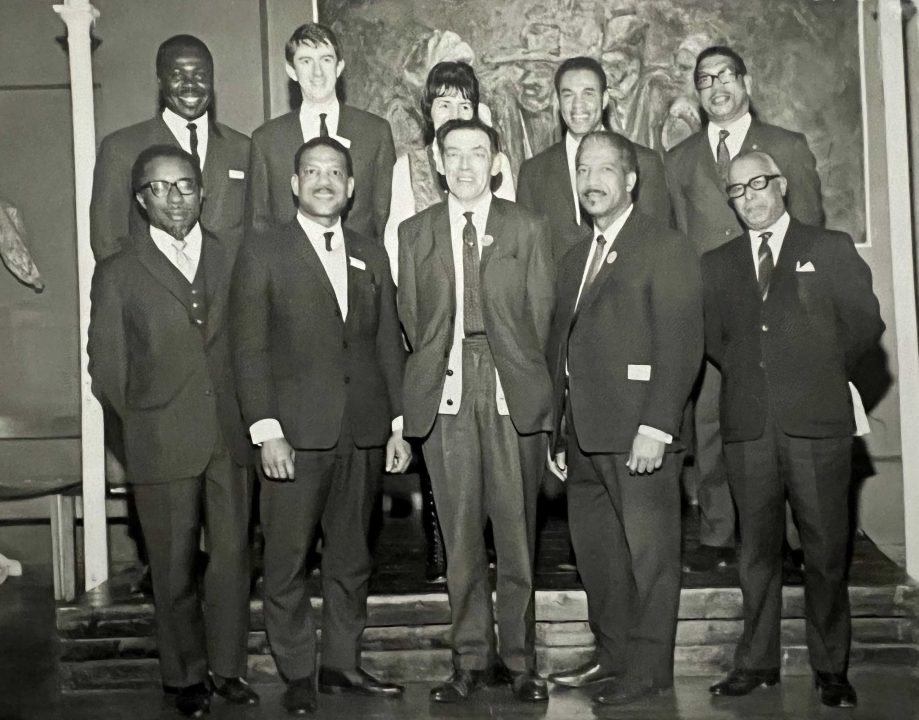This year marked the 75th anniversary of the Empire Windrush’s voyage to the UK in 1948, carrying 1,027 passengers from Jamaica to London. On board were several people future pioneers of the British credit union movement.
Upon their arrival, the Windrush Generation faced difficulties accessing financial services, from being denied loans to being charged unfairly high interest rates compared to other customers. At the time, there was no law against racial discrimination – a situation that did not change until 1965 with the Race Relations Act. Another issue was the lack of a credit record for the new arrivals.
To address this, in 1964 a group of British Caribbean people set up Hornsey Co-operative Credit Union – the first credit union to register under the Industrial and Provident Societies Act 1893. The organisation merged with London Capital Credit Union in 2013, making it the oldest surviving credit union in the UK.
Hornsey’s founders, members of the congregation at Ferme Park Baptist Church, were familiar with credit unions in their native Jamaica, and many of the first credit unions of Caribbean heritage were based on the Jamaican Pardner System, whereby a group of individuals agreed to save a set amount on a regular basis, usually once a week or month.
Hornsey CCU initially operated as an informal savings club, with around 200 members joining in the first year. One of its founding members was Jamaican-born Blair Greaves, who served on its board for its entire 50-year existence and was president for over 25 years, up to the time of its merger with London CCU.
Related: UK Black History Month: ‘Co-ops should Rise to the occasion’
In 2014 his daughter Elaine joined the board of London CCU. “I am keen to follow in my father’s footsteps promoting the credit union movement as a fair and more ethical source of financial services,” she says on the credit union’s website.
Along with representatives of other West Indian credit unions from Highgate in London and Hove, Hornsey Co-operative Credit Union set up the Credit Union League of Great Britain (CULGB) in 1967. The same year, CULGB representatives met with officials of the National Federation of Credit Unions, set up the same year by Wimbledon Credit Union along with two other new credit unions, operating from Roman Catholic churches in Hove and Highgate. They agreed to amalgamate to create a single apex for British credit unions, forming the Central Credit Union Council of Great Britain in 1968. Unfortunately, after divergences in opinion and modus operandi, CULGB credit unions withdrew from the Central Council the same year.

CULGB remained active and in 1970 organised its first training seminar and conference at Myddleton Lodge, Ilkley. As the credit union movement continued to grow, politicians paid it more attention, leading to a mention in the Crowther Report on Consumer Credit. The report noted that the then seven credit unions affiliated with the National Federation of Credit Unions had under £35,000 on loan at the end of 1969. It is estimated that the total outstanding in loans from all credit unions in the country at the end of was 1969 was £75,000.
CULGB continued to lobby for credit union legislation, working closely with the Irish League of Credit Unions and the World Council of Credit Unions. The latter provided the resources and manpower to help with credit union development and lobbying for legislation. By the time the Credit Unions Act 1979 passed, there were 10 credit unions registered under the Companies Act and four registered under the Industrial Provident Societies Act 1964. There were also credit unions operating as unregistered societies. In 1984 the Credit Union League of Great Britain formally changed its name to the Association of British Credit Unions Ltd (Abcul), its current name.
Earlier this year, London Mutual Credit Union marked Windrush Day on 22 June by publishing an article exploring the Windrush Generation’s role in the development of the British credit union movement.
“People who were part of the Windrush Generation and their children and grandchildren continue to play an important role in credit unions across the country,” wrote Charles Nyamukasa, digital marketing apprentice at London Mutual.
“This includes here at London Mutual. Across the UK, credit unions continue to have a well-deserved reputation for serving those left behind by the big banks. This includes newer arrivals to the UK and those fleeing Russia’s invasion of Ukraine.
“We continue to work to live up to the legacy of the Windrush Generation and the example they set for us. Ultimately, the lesson is that when people work together and support one another, we all achieve greater success, including our own inspiring stories to tell one day.”

Another one of Britain’s earliest credit unions was London’s Pentecostal Credit Union, founded in 1980 by the Rev Carmel Jones, who died in July this year.
“The Pentecostal Credit Union (PCU) was established over 43 years ago,” says head of marketing and communications, Elaine Bowes. “It has been said that the main challenges were gaining support from the common bond community. A great deal of outreach work was done to explain what the credit union could do to improve lives of Black people who were experiencing financial exclusion specifically and for churches who needed funding to buy their buildings.”
Related: Pentecostal Credit Union launches new product for young savers
Reflecting on its history, current PCU CEO Shane Bowes told Abcul: “Despite the humiliation of racial prejudice, [Rev Carmel Jones] made significant and groundbreaking achievements in his life. In fact, racist exclusion propelled and inspired his attainments, one of which was founding the PCU – trading now for over 43 years.
“PCU was proud to take part in the National Windrush 75th Anniversary Service at Southwark Cathedral, where I retold his story.
“We feel honoured to be given the opportunity to celebrate and to demonstrate our deeply held gratitude and respect for the courage and fortitude of the trailblazing and pioneering individuals that we today call the Windrush Generation.”
“These stories are just some examples of the revolutionary work Windrush migrants undertook to make the British financial sector more inclusive and we give thanks to their efforts years later,” said Abcul CEO Robert Kelly.
The credit unions with Caribbean Heritage still trading are Leicester Caribbean Credit Union Limited registered in 1980, Croydon Caribbean Credit Union Limited registered in 1980, the Chaplaincy Savings and Credit Union Limited registered in 1982, Felix Credit Union (Bradford) Limited – registered in 1980 and the Pentecostal Credit Union Limited registered in 1980. Many of the British credit unions of Caribbean roots that were initially registered later deregistered, such as Reading Caribbean Club Credit Union Limited – registered in 1980 (deregistered 1988), South London Catholic Caribbean Credit Union Limited – registered in 1980 (deregistered 2003), Caribbean Parents Group Credit Union Limited – registered in 1991 (deregistered 2016), Coventry West Indian Association Credit Union Limited – registered in 1980 (deregistered 1983), Derby United Credit Union Limited – registered in 1980 (deregistered 2018) and Antilles Credit Union – video here (deregistered 1993).
This story was amended on 17 October to include a list of the credit unions with Caribbean Heritage still trading in the UK.